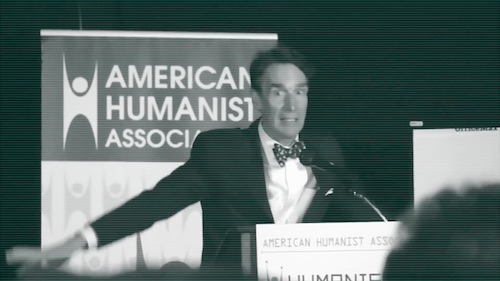 Culture & Ethics
Culture & Ethics
 Evolution
Evolution
 Faith & Science
Faith & Science
 Intelligent Design
Intelligent Design
A View of the World Fueled by “Nothing Special”

It’s helpful to step back periodically, take a sweeping look at your own interests and commitments, and ask what if anything they have in common. Or conversely, look at the ideas and movements you oppose — since we’re defined as much by what we don’t like as by what we do — and consider what they have in common.
Are your commitments schizophrenic, or do they cohere?
Everything we talk and write about here at Evolution News is unified by our common defiance of a persuasive but damaging view of the world. The worldview we critique is unified by the attitude that everything human beings have held to be precious really isn’t special at all.
For an enlightening juxtaposition on this, read Dr. Michael Egnor’s article, our current cover story, “Can Pigeons Read?” Then listen to a pair of podcast interviews for ID the Future with Microsoft software engineer Brendan Dixon, debunking the widely held notion that our brains are just “meat computers” (here and here).
Writing about a study in Proceedings of the National Academy of Sciences and about the media hype around it, Egnor concludes:
No one outside of a locked mental ward thinks that pigeons have the same (or higher!) intelligence than a three-year-old child. This junk science and junk journalism is used to equate human beings with animals and to deny human exceptionalism. Rest assured that this frightening trend will not result in increased respect and care for animals, but will most certainly result in decreased respect and care for human beings.
The parallel between the memes under consideration is eerie: One says people are nothing special compared to animals (in this case, children compared to pigeons). The other says human brains are nothing special compared to computers. Indeed, human brains are computers operating in a wet, biological environment. It’s only a matter of time before dry computers take over the world from us.
In other words, people are nothing special. By the same token, Darwinian evolution dispenses a narrative whereby dead compounds generated life by a series of chance happenings involving matter and energy. Thus microbes led to man. Nothing in this chain of beings is special.
Our planet isn’t special, either. According to this same line of thinking, countless parallel Earths exist, including exoplanets inhabited by living, even intelligent beings. When it’s pointed out that the cosmos offers no evidence of life elsewhere, and that the needed conditions for life are ultra-finely tuned, the Nothing Special crowd posits a multiverse. Our universe, they explain, is nothing special. It’s one of countless other universes. Ours is only unusual in having won a jackpot, at random, generating the right physical laws to allow the existence of a habitable planet. For more on this see the new Illustra documentary, Origin.
Just as the winner of a state lottery is nobody special, at least not by virtue of having won a lottery, our universe, our planet, us — none of this is precious. None of it occurred by design. None of it means anything in an ultimate sense.
As atheist Bill Nye has memorably put it, speaking for the human race:
I am just another speck of sand. And the earth really in the cosmic scheme of things is another speck. And the sun, an unremarkable star, nothing special about the sun. … And the galaxy is a speck. I’m a speck on a speck orbiting a speck among other specks among still other specks in the middle of specklessness! I suck!
See the beginning of our video documentary Privileged Species, and its companions exploring the thought of biologist Michael Denton. The question is whether we, our planet, is privileged or not.
“I suck”: that is the anthem of the Nothing Special movement that seeks to do away with what Wesley Smith calls human exceptionalism. Science — junk science — is a vehicle for the drive to wipe out the idea of mankind’s special status in the world, along with the unique responsibilities that brings with it. Politics and history are other vehicles.
Because after all, not only do I suck, but so do you, and so does our country. Our friend and colleague Michael Medved‘s upcoming book The American Miracle takes on the Nothing Special view as applied to U.S. history. That history is chockfull of what can only be called the uncanny, suggesting the working out of a preconceived plan.
Between the view that says, about everything it sees, “That sucks, we suck, I suck,” and the opposite view, there lies a great chasm. And what should we call that opposite view? There’s no more accurate descriptor than “intelligent design.”
Between these opposing perspectives, a battle of ideas is being fought. Once it might have been fought over a battleground of religion, philosophy, politics — or literally over a battlefield, between armies of soldiers employing weapons of war. Today, because the prestige of science casts all else in its shadow, the fight is over science.
It’s a depressed teenager’s nihilism — but proved by science! — versus an exalted picture of the cosmos and our place in it. Few us are untouched by the demoralizing belief that nothing’s special. It’s powerfully ascendant in our culture, so how could we be unmoved by it?
Who is right? Who will prevail? On that question, it seems to me, the future of our culture depends.
Image: Bill Nye, via YouTube.
